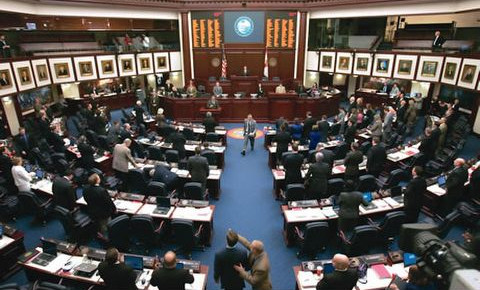Legislative Network Services
Latest Updates
Updates by Bob Cerra, NEFEC Legislative Consultant, Cerra Consulting Group
February 17, 2026
NEFEC Budget Notes - Major Differences Between House and Senate Positions
February 13, 2026
House Proposed FEFP - Vouchers Included in Totals
Senate Education Budget Spreadsheets
Senate Appropriations implementing Bill
Senate Education Conforming Bill
News Feed
Links
- House Bills
- Senate Bills
- House Members
- Senate Members
- Online Sunshine - Florida Legislature
- Live Streaming Video of Legislative Committee Meetings
- Governor's Office
- Florida Department of Education
- FADSS - Florida Association of District School Superintendents
- AASA - The School Superintendents Association
- FASA - Florida Association of School Administrators
- FSBA - Florida School Boards Association
- FELL - Florida Education Legislative Liaisons
- NSBA - The Office of Advocacy
- SSDCC - Small School District Council Consortium
- Thomas - Federal Legislative Web Site
Newspapers
- The Gainesville Sun
- The Star-Banner (Ocala)
- Palatka Daily News
- St. Augustine Record
- Daytona Beach News-Journal
- The Florida Times-Union (Jacksonville)
- The Tallahassee Democrat
- Chiefland Citizen
- The Lake City Reporter
- Tampa Bay Times
- The Tampa Tribune
About / Contact

NEFEC Legislative Network Services is a cooperative legislative and educational program whereby the 15 member districts of the Consortium are able to influence the legislative process more effectively than on an individual district basis. Through this program the Consortium serves as a liaison with the State Department of Education, the districts, and the Florida Legislature.
Benefits include:
- Forming linkages with state and local agencies, entities, and organizations which impact education related policies, programs and practices in Florida
- Attending and monitoring all meetings of the State Board of Education, Cabinet, Legislature, and various commissions concerned with education
- Keeping member districts informed on actions taken by these entities
- Coordinating the development of the Consortium's annual legislative program/priorities
- Providing quick response to legislators on questions/concerns about proposed legislation and any other relative educational issue
- Providing assistance in interpreting new or amended legislation
Please contact us here:
Bob Cerra
Cerra Consulting Group, Inc.
850-212-6233 (cell)
850-222-4428 (office)
bobcerra at comcast dot net
John Cerra
Cerra Consulting Group, Inc.
786-525-6233 (cell)
850-222-4428 (office)
cerraj at comcast dot net


